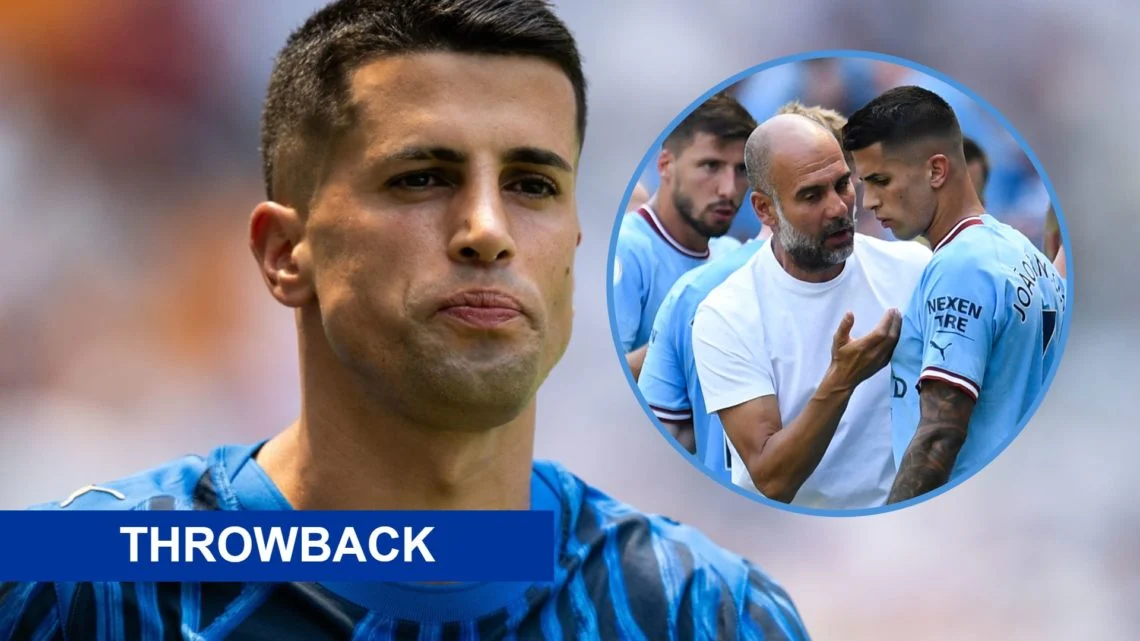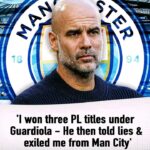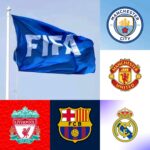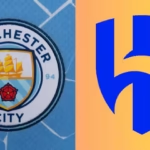The Joao Cancelo Saga: From Manchester City Star to Al-Hilal Hero

The Club World Cup has delivered many compelling narratives over the years, but few carry the emotional weight and intrigue of Manchester City’s upcoming last 16 encounter with Al-Hilal. When the draw was made, football fans worldwide immediately focused on one particular subplot: the reunion between Pep Guardiola’s Manchester City and their former star full-back, Joao Cancelo, who now plies his trade in the Saudi Arabian desert with Al-Hilal.
This meeting represents more than just another knockout fixture in FIFA’s premier club competition. It’s a fascinating intersection of past and present, where one of the Premier League’s most enigmatic transfers comes full circle. For Cancelo, it’s an opportunity to face his former manager and teammates on one of football’s biggest stages. For City, it’s a chance to see how a player they once considered integral to their success has evolved in his new environment.
The timing couldn’t be more perfect for such a reunion. Manchester City arrive at this stage of the competition in scintillating form, having dominated Group G with a perfect record that included a spectacular 5-2 demolition of Juventus. Meanwhile, Al-Hilal have assembled a squad that reads like a who’s who of European football’s recent past, with Cancelo as one of their most high-profile acquisitions.
Manchester City’s journey through the group stage has been nothing short of exemplary, showcasing the tactical evolution that has made them one of the world’s most feared teams. Under Pep Guardiola’s meticulous guidance, the Citizens have displayed the kind of clinical efficiency that has become their trademark in recent years.
Their summer transfer business has proven to be inspired, with three key signings immediately making their mark on the team’s performances. Rayan Ait-Nouri, the dynamic left-back acquired to bolster their defensive options, has slotted seamlessly into Guardiola’s system. His pace, crossing ability, and defensive solidity have provided the perfect complement to City’s attacking philosophy.
Tijjani Reijnders, the Dutch midfielder who joined from AC Milan, has brought a different dimension to City’s already impressive midfield arsenal. His ability to dictate tempo, combined with his exceptional passing range, has given Guardiola another tactical weapon in his quest for perfection. The 26-year-old’s versatility has been particularly valuable, allowing the Spanish manager to deploy various formations depending on the opposition.
Perhaps most exciting has been the integration of Rayan Cherki, the French attacking midfielder whose creativity and flair have added an extra layer of unpredictability to City’s forward play. His technical ability and vision have made him an instant fan favorite, and his understanding with established stars like Erling Haaland and Phil Foden has been remarkable to witness.
The 5-2 victory over Juventus served as the perfect demonstration of how these new signings have enhanced City’s already formidable squad. Ait-Nouri and Jeremy Doku’s partnership on the left flank was particularly impressive, showcasing the kind of fluid, attacking football that has made City so compelling to watch under Guardiola’s stewardship.
Al-Hilal’s transformation into a global footballing powerhouse has been one of the most remarkable stories in recent years. The Saudi Arabian club’s ambitious project has attracted some of Europe’s finest talents, creating a squad that would be competitive in any major league worldwide.
The presence of Ruben Neves, the Portuguese midfielder who made his name at Wolves, has provided Al-Hilal with exceptional quality in the center of the park. His passing ability, tactical intelligence, and leadership qualities have made him an invaluable addition to the squad. Neves brings Premier League experience and the kind of technical proficiency that has helped elevate the standard of football in the Saudi Pro League.
Sergej Milinkovic-Savic, the Serbian powerhouse who dominated Serie A with Lazio for years, represents another coup for Al-Hilal. His physical presence, aerial ability, and goal-scoring threat from midfield have given the team a different tactical dimension. The 30-year-old’s experience in high-pressure situations will be crucial when facing a team of City’s caliber.
Kalidou Koulibaly, the Senegalese center-back who was once considered one of the world’s finest defenders during his time at Napoli, anchors Al-Hilal’s defensive line with authority. His pace, strength, and ability to play out from the back make him perfectly suited to the modern game. All three players – Neves, Milinkovic-Savic, and Koulibaly – were previously linked with moves to the Etihad Stadium, adding another layer of intrigue to this encounter.
However, it’s Joao Cancelo who represents the most significant connection between these two clubs. His journey from Manchester City star to Al-Hilal hero is a story that encapsulates the changing dynamics of modern football and the sometimes unpredictable nature of player-manager relationships
When Manchester City secured Joao Cancelo’s signature from Juventus in 2019 for £60 million, with Danilo moving in the opposite direction for £30 million, expectations were sky-high. The Portuguese full-back arrived with a reputation as one of Europe’s most promising defensive talents, boasting the kind of technical ability and tactical intelligence that seemed tailor-made for Guardiola’s system.
However, Cancelo’s initial period at the Etihad Stadium was far from smooth. The Premier League’s intensity and physicality presented challenges that took time to overcome. His early performances were inconsistent, leading to speculation about his long-term future at the club. The nadir came when he was omitted from the squad for the 2020 Carabao Cup final victory over Aston Villa, a decision that sparked rumors of an impending departure.
Yet football has a way of surprising even its most astute observers. Rather than facilitating an exit, Guardiola persevered with Cancelo, recognizing the unique qualities that the Portuguese international could bring to his team. This patience proved to be inspired, as Cancelo gradually began to find his feet in English football.
The breakthrough came when Guardiola deployed him at left-back, a position that seemed to unlock Cancelo’s full potential. His ability to invert into midfield during attacking phases provided City with numerical superiority in central areas, while his close control and passing ability allowed them to maintain possession under pressure. This tactical innovation became a hallmark of City’s play during their most successful periods.
The 2021-22 season represented the pinnacle of Cancelo’s Manchester City career. His performances were sublime, combining defensive solidity with attacking threat in a way that few full-backs in world football could match. He became integral to City’s tactical setup, with Guardiola often building attacks around his ability to drift inside and create overloads in midfield.
Cancelo’s versatility was another asset that endeared him to Guardiola. Equally comfortable on either flank, he provided tactical flexibility that allowed the manager to adjust formations during games without making substitutions. His understanding of space and timing made him the perfect embodiment of Guardiola’s positional play principles.
The 2022-23 season began with Cancelo appearing to be as important as ever to Manchester City’s plans. He started the first twelve league games, seemingly cementing his position as one of the first names on Guardiola’s team sheet. His performances during this period showed no obvious signs of decline, making what followed all the more shocking.
The change came suddenly and without warning. Cancelo found himself relegated to the bench, with Nathan Ake and Manuel Akanji preferred in the full-back positions. The rapid demotion was startling, particularly given his consistent performances in previous seasons. For a player who had become accustomed to being integral to the team’s tactical setup, this sudden marginalization was difficult to accept.
The exact reasons for Cancelo’s fall from grace remain somewhat mysterious. Tactical considerations may have played a part, with Guardiola perhaps seeking different qualities from his full-backs. The emergence of other players who could provide similar versatility might have reduced Cancelo’s unique value to the squad. However, the speed and completeness of his exclusion suggested that other factors were at play.
Speculation about a rift between player and manager began to surface in the media. Reports suggested that Cancelo had become frustrated with his reduced role and that this frustration had manifested in ways that were detrimental to the team’s harmony. Whether these reports were accurate or merely media speculation, they created an atmosphere of uncertainty around the player’s future.
As the January transfer window approached, it became increasingly clear that Cancelo’s time at Manchester City was coming to an end. The situation had reached a point where a resolution was necessary for all parties involved. The player needed regular football to maintain his form and confidence, while the club needed to avoid any potential disruption to their pursuit of silverware.
The loan move to Bayern Munich in January 2023 represented a fresh start for Cancelo, albeit one tinged with disappointment about how his City career had concluded. The German giants were delighted to secure the services of such a high-quality player, even on a temporary basis.
Cancelo’s time at Bayern was notable for several reasons, not least because it pitted him directly against his former club in the Champions League. These encounters were emotionally charged affairs, with the Portuguese defender eager to prove that City had made a mistake in letting him go.
While at Bayern, Cancelo delivered some excellent performances, reminding the football world of his undoubted quality. His technical ability and tactical intelligence remained as sharp as ever, and he quickly adapted to the Bundesliga’s demands. However, the knowledge that his former teammates were achieving historic success without him must have been difficult to bear.
Manchester City’s treble triumph during the 2022-23 season – winning the Premier League, FA Cup, and Champions League – represented the ultimate validation of Guardiola’s tactical decisions. That Cancelo was not part of this historic achievement undoubtedly stung, particularly given his significant contributions to the club’s success in previous seasons.
The summer of 2023 brought another opportunity for Cancelo to revive his career, this time with Barcelona. The Catalan giants, always appreciative of technical quality, saw the Portuguese defender as an ideal fit for their possession-based style of play.
Cancelo’s season at Barcelona was generally positive, though not without its challenges. The club’s financial difficulties meant that resources were limited, and the team was in a period of transition following several years of relative decline. Nevertheless, Cancelo’s performances were largely impressive, demonstrating that his quality had not diminished despite the disappointments of the previous year.
His time at Barcelona also provided an opportunity for reflection and personal growth. The chance to work with different coaches and experience different footballing cultures broadened his perspective and helped him develop as both a player and a person. However, it was always understood that his stay in Catalonia would be temporary, with bigger decisions about his long-term future still to be made.
The decision to join Al-Hilal permanently for £21.1 million in 2024 represented a significant shift in Cancelo’s career trajectory. At 30 years old, with his best years still ahead of him, the move to Saudi Arabia raised eyebrows among some observers who felt he could still compete at the highest level in Europe.
However, Al-Hilal’s ambitious project and the quality of their squad made the proposition attractive. The club’s vision of becoming a global footballing powerhouse, combined with the financial resources to make this dream a reality, convinced Cancelo that this was the right next step in his career.
The Saudi Pro League’s rapid development has been remarkable to witness. The influx of high-quality players from Europe has elevated the standard of competition, creating an environment where top-level football can flourish. For Cancelo, this represented an opportunity to be part of something special while continuing to challenge himself at the highest level.
His integration into Al-Hilal’s squad has been seamless, with his experience and quality immediately apparent. The tactical sophistication that he brings to the team has been particularly valuable, helping to improve the overall standard of play and contributing to the club’s success in domestic and international competitions.
One of the most persistent narratives surrounding Cancelo’s departure from Manchester City concerned his relationship with Pep Guardiola. Media speculation suggested that the two had fallen out dramatically, leading to the player’s sudden exclusion from the team and eventual departure.
However, Cancelo himself has been keen to dispel these rumors, providing clarity on what actually transpired during his final months at the Etihad Stadium. In interviews following his departure, he emphasized that no dramatic confrontation had occurred between him and his former manager.
According to Cancelo’s account, the situation was handled with professionalism and mutual respect. He acknowledged feeling frustrated by his reduced playing time and approached Guardiola to discuss his concerns. Rather than dismissing these concerns or engaging in conflict, the Spanish manager listened and agreed that a move would be beneficial for all parties involved.
“It’s a lie that I had a fight with Guardiola, a complete lie,” Cancelo stated emphatically. “I didn’t feel important to the team in recent games. I spoke with the manager and he agreed. The manager, the club, and I decided that I had to leave, that it was the best option for me.”
This account suggests a far more mature and professional resolution than the media speculation had implied. It speaks to Guardiola’s man-management skills that he was able to handle a potentially difficult situation with such grace, ensuring that a valued player could move on without acrimony.
Cancelo’s respect for his former manager remained intact despite the disappointment of leaving. “I like new opportunities and I have nothing against City,” he explained. “There, I took the step to reach the level I wanted to reach. I became the player I am today and I am very grateful to Pep and the club. They gave everything to me and my family, and I will never forget it.”
The Cancelo situation highlights many of the complexities that define modern football. Squad management at the highest level requires balancing numerous competing interests: tactical requirements, player expectations, squad harmony, and long-term planning all play a role in decision-making.
For managers like Guardiola, the challenge is not just about picking the best eleven players for each game, but about maintaining a squad dynamic that maximizes the potential of all involved. Sometimes this means making difficult decisions about players who have contributed significantly to past success but may no longer fit the evolving tactical picture.
The case also illustrates how quickly situations can change in professional football. A player can go from being indispensable to surplus to requirements in a matter of months, not necessarily due to any dramatic decline in ability, but because of shifting tactical needs or the emergence of new options.
For players, adapting to these changes requires resilience, professionalism, and sometimes the courage to seek new challenges. Cancelo’s willingness to explore opportunities in different leagues and cultures demonstrates the kind of adaptability that modern footballers need to possess.
As Manchester City and Al-Hilal prepare to face each other in the Club World Cup last 16, the spotlight will inevitably fall on the reunion between Guardiola and Cancelo. For the Portuguese defender, this represents an opportunity to demonstrate that he has continued to develop and improve since leaving Manchester.
The tactical battle will be fascinating to observe. Guardiola’s intimate knowledge of Cancelo’s strengths and weaknesses will inform City’s approach, while Cancelo’s understanding of how City operate could prove valuable for Al-Hilal’s preparations.
From a purely footballing perspective, the match promises to be compelling. Manchester City’s current form suggests they will enter as favorites, but Al-Hilal’s quality and experience in high-pressure situations make them dangerous opponents. The presence of players like Neves, Milinkovic-Savic, and Koulibaly, combined with Cancelo’s tactical intelligence, gives them the tools to trouble even the best teams.
For Cancelo personally, the emotional dimension of facing his former club will add extra motivation. Professional footballers are often driven by the desire to prove doubters wrong, and this match represents the perfect stage for such a demonstration.
The Club World Cup encounter between Manchester City and Al-Hilal also represents a broader narrative about the globalization of football. The fact that a Saudi Arabian club can attract players of Cancelo’s caliber speaks to the changing dynamics of the sport and the emergence of new centers of footballing power.
The Saudi Pro League’s rapid development has been enabled by significant financial investment, but it also reflects a genuine commitment to improving standards and competing with the world’s best leagues. The presence of top-quality players, coaches, and infrastructure has created an environment where meaningful football can flourish.
For players like Cancelo, the opportunity to be part of this development while continuing to compete at the highest level represents an attractive proposition. The chance to experience different cultures and footballing philosophies can be enriching both personally and professionally.
The Joao Cancelo saga ultimately represents a story of growth, adaptation, and the complex realities of modern football. From his challenging early days at Manchester City to his emergence as a key player under Guardiola, from his sudden fall from grace to his successful reinvention at Al-Hilal, his journey has been marked by both triumph and adversity.
The upcoming reunion with Manchester City provides a perfect bookend to this chapter of his career. Regardless of the result, the match will serve as a reminder of how quickly football can change and how important it is for players to remain adaptable and resilient in the face of challenges.
For Manchester City, the encounter with their former player will be just another obstacle to overcome in their pursuit of Club World Cup glory. For Al-Hilal, it represents an opportunity to announce themselves on the global stage against one of the world’s best teams.
And for Joao Cancelo, it’s a chance to show that sometimes the end of one chapter is simply the beginning of another, equally compelling story. In the grand narrative of modern football, where players regularly move between continents and cultures in pursuit of success and fulfillment, his journey from Manchester to Riyadh represents not just a career change, but a testament to the sport’s ever-evolving global character. The beautiful game continues to surprise and inspire, and stories like Cancelo’s remind us why football remains the world’s most beloved sport.















